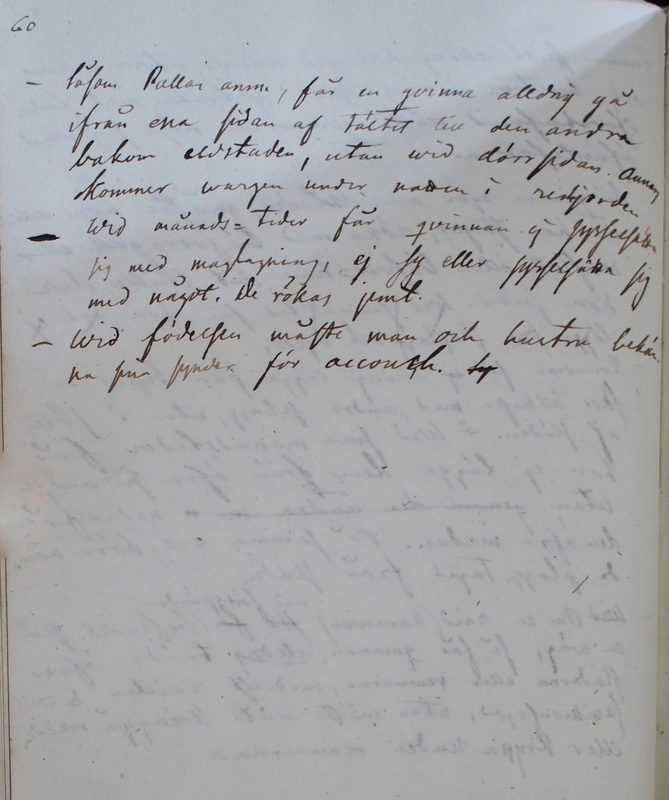Ethnographiska, historiska och statistiska anmärkningar. 060
Title
Ethnographiska, historiska och statistiska anmärkningar. 060
Description
| Såsom
Pallas
anm[ärker]., får en qvinna alldrig gåSee Pallas 1776: 70–74; 1788: 94–96.
ifrån ena sidan af tältet till den andra bakom eldstaden, utan wid dörrsidan.
AnnarsA practice related to the spatial complex opened in comment [Qvinnor]. This practice goes back to the structure of the conical tent, мяʺ [meäh], virtually divided into two halves by a sacred line that crosses the tent from the back, сиʹ, to the door. Сиʹ is considered sacred and pure in contrast to the sacral impurity of the women. (Chomič 1966: 185; Golovnev & Osherenko 1999: 37)
kommer wargen under natten i renhjorden. |
As Pallas notes, a woman must never walk from one side of the tent to the other behind the fireplace, but through the side where the door is. Otherwise a wolf will come into the reindeer herd during the night. |
| Wid månads=tider får qvinnan ej sysselsätta sig med matlagning, ej sy eller sysselsätta sig med något. De rökas jemt. |
While menstruating, women are not allowed to prepare food, sew, or occupy themselves with anything. They are smoked regularly. |
| Wid födelsen måste man och hustru bekän- na sina synder för accouch. [ackuschörskan].
Chomič notes that some elderly women might act as midwives, who would put up a special tent for the labour and support a woman in labour. Alternatively, a woman could give birth alone or with the help of female relatives. Men should not be present. Confessing sins, particularly adultery, was considered to prevent difficult labour. (Chomič 1966: 177–180.)
|
When a woman is giving birth, she and her husband must confess their sins to the midwife. |

